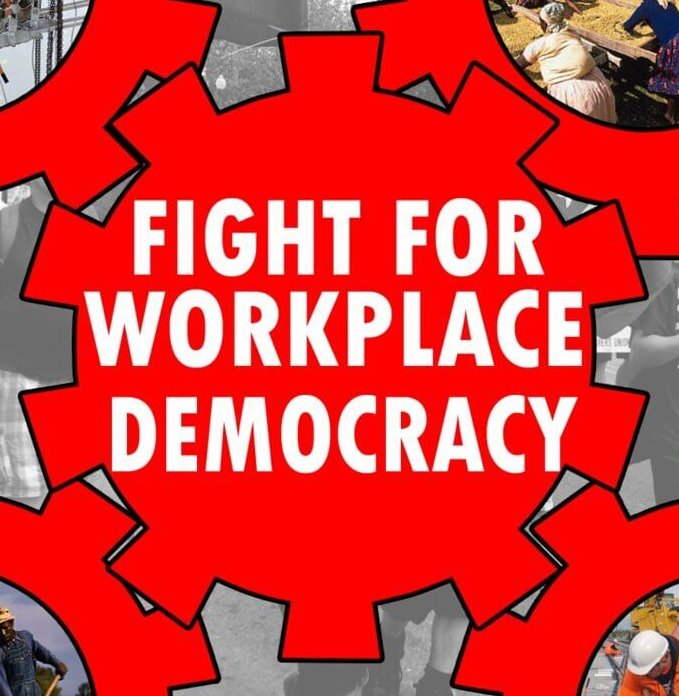Summary: An activist’s personal reflections on the lockdown in Southern California – Editors.
The sky is clear. The most remarkable effect of the plague here has been the uniform liberation of our air due to traffic’s absence. Where once pollution, which was even worse decades ago, made viewing the horizon difficult, the human eye is now freed to see your surroundings as they actually are.
What you see is a world with cancelled schools and empty churches. The universities with their throngs of youths are closed. The few open restaurants are forced by circumstances and if necessary, the law, to provide take out only. Malls, those great temples of useless items, have been shut down. It is magical to witness a world dominated by capitalists that does not have consumers.
The grab motive United States economists relied on for the stock exchange is reduced to necessities. Fights that would take place for overpriced shoes now happen over toilet paper. Despite the current pleas of government officials to avoid hoarding, rules limiting purchases have to be enforced by overwhelmed teenage employees.
Inside one of the vast supermarkets that dot California, I saw a uniformed member of the 82nd Airborne. With his hair fashioned to Army regulations and wearing camouflage clothing, he was no doubt inspecting the store for good hygiene. If anybody has ever known an enlisted member of the United States military, cleaning is an enlisted person’s forte.
Safe with my newfound confidence in the store’s protection, I proceeded to pick up a cake my family had requested for an anniversary. I did not even know before the crisis that anniversaries can be celebrated with cake, but much time alone with family encourages celebrations when you can. The workers receive a lot of grief from impatient customers while trying to stay 6 feet away from people. This results in pressure to disobey the rules and risk their own health. If one does not disobey the rules, one practically has to raise your voice to be heard.
A scene from one of the few public spaces available open to the masses is then painful to navigate. Combined with the long hours spent indoors or on increasingly restricted trails in the wilderness, an extrovert begins to feel oppressed. I wonder how this will affect the alienation we feel under capitalism.
I view history as moving through zigzags. A dialectic is at work here, that I think will lead to pressure for healthcare reform and reduced working hours. Where once the rich could ignore diseases like obesity or infection, they have now been blessed with equality among the viruses. The wealthy will be reminded they live under a capitalist healthcare system and from those consequences reform will come.
Bosses who no longer see a rational need for wasting their worker’s time in traffic and wearing stupid suits and pantsuits will debate if work must happen at the office. Naturally they will find a way to make the work even more grueling to make up for the worker’s freedom and lack of a commute, but steam in a pot can only be contained for so long. I hope and yearn for a world where something good comes out of plague, but that of course is only up to us in the end, as it always has been for humanity’s problems.
LEAVE A REPLY
1 Comment
LEAVE A REPLY
1 Comment
 Marilyn Nissim-Sabat on April 8, 2020 at 9:44 am
Marilyn Nissim-Sabat on April 8, 2020 at 9:44 amThank you, Chris Aquino, for your moving reflection on the Lockdown in Southern California, and for your reflections on how both capitalists and everyone else might react when the crisis is over. I was particularly pleased by your question regarding how all of this “will affect the alienation we feel under capitalism.”
Though this was not at all the aim or intent of your reflection, it seems to me that a reflection on how Marxist-Humanists might react, not just post hoc, but now—that this question is of very great importance. In my view, we should respond to your question regarding the alienation we experience under capitalism. One of the distinguishing features of Marxist-Humanism is the emphasis we place on Marx’s analysis of alienation in capitalist societies as a function of the very structure and functioning of capitalism itself. It seems to me that we have an obligation now to lay bare the way in which the Trump administration has consistently and persistently on every front acted to continue to maximize alienation by immediately stamping out, crushing any socio-political/economic tendency that might conceivably reduce alienation. It seems to me that if we do not do this, we are renouncing our Marxist-Humanist heritage and hopes for a more human future.






Thank you, Chris Aquino, for your moving reflection on the Lockdown in Southern California, and for your reflections on how both capitalists and everyone else might react when the crisis is over. I was particularly pleased by your question regarding how all of this “will affect the alienation we feel under capitalism.”
Though this was not at all the aim or intent of your reflection, it seems to me that a reflection on how Marxist-Humanists might react, not just post hoc, but now—that this question is of very great importance. In my view, we should respond to your question regarding the alienation we experience under capitalism. One of the distinguishing features of Marxist-Humanism is the emphasis we place on Marx’s analysis of alienation in capitalist societies as a function of the very structure and functioning of capitalism itself. It seems to me that we have an obligation now to lay bare the way in which the Trump administration has consistently and persistently on every front acted to continue to maximize alienation by immediately stamping out, crushing any socio-political/economic tendency that might conceivably reduce alienation. It seems to me that if we do not do this, we are renouncing our Marxist-Humanist heritage and hopes for a more human future.